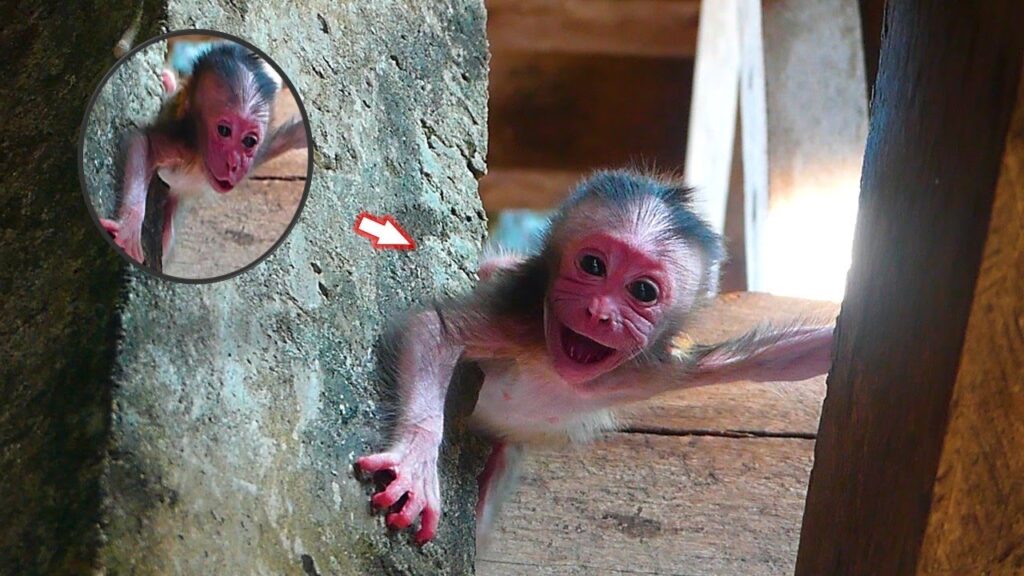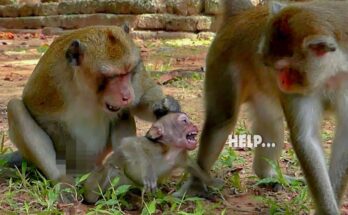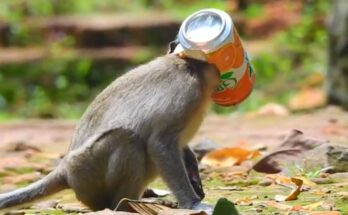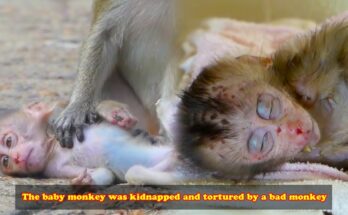
In the heart of the forest, where life flows freely and nature rules every moment, a heartbreaking scene unfolded. A tiny newborn monkey, fragile and barely able to balance, had wandered too far from its mother. In a clumsy attempt to climb, it slipped and got wedged between two sharp rocks. Its tiny arms flailed helplessly as it cried loudly, the sound echoing through the trees. The mother, distressed, circled nearby but was unable to reach or lift her baby from the dangerous spot.
Minutes felt like hours as the newborn’s cries grew more desperate. Other troop members gathered around, watching anxiously but equally powerless. The scene was almost unbearable to witness. It was at this critical moment that the cameraman, who had been quietly documenting the troop, realized that the baby’s life was in real danger. Breaking the usual rule of non-interference, he made the brave decision to step in.
Carefully, he approached the frightened baby, speaking softly to avoid alarming the mother and the troop. With gentle hands, he lifted the newborn from the jagged rock where it had been stuck. For a moment, the baby clung tightly to his finger, still trembling with fear. Slowly, the cameraman placed the infant back within reach of its mother.
The mother rushed forward, grabbing her baby and pulling it close to her chest. She groomed it anxiously, as though counting every breath to make sure her little one was safe again. The troop gradually calmed, and the forest returned to its natural rhythm.
This emotional rescue showed the deep compassion humans can feel for wildlife. The cameraman’s decision not only saved a fragile life but also reminded us how precious and delicate the bond of survival is in nature.


